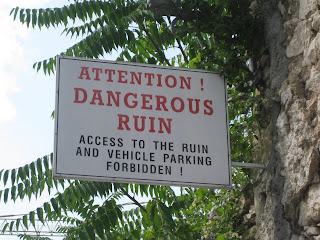It was inevitable - Haiti has left the headlines. Today is the first day the New York Times has not echoed the fight for survival in Haiti. It seems the Apple Tablet is now more interesting. We are moving on. For those left in the wake, now is the time to differentiate between compassion and justice.
 David Brooks was initially correct in his January 14th New York Times article when he states, “this is not a natural disaster story. This is a poverty story.” However, Mr. Brooks then proceeded to construct a Eurocentric narrative effectively blaming Haitian society for allowing an earthquake devastate their island: “responsibility is often not internalized. Child-rearing practices often involve neglect [. . .] some cultures are more progress-resistant than others, and a horrible tragedy was just exacerbated by one of them.” Labeling a country such as this a perpetuation in paternalistic compassion – feeling sorry for Haiti because they are not as enlightened as their Western, white neighbors. But, Haiti continues to fight back by issuing a call for justice, not simplified compassion.
David Brooks was initially correct in his January 14th New York Times article when he states, “this is not a natural disaster story. This is a poverty story.” However, Mr. Brooks then proceeded to construct a Eurocentric narrative effectively blaming Haitian society for allowing an earthquake devastate their island: “responsibility is often not internalized. Child-rearing practices often involve neglect [. . .] some cultures are more progress-resistant than others, and a horrible tragedy was just exacerbated by one of them.” Labeling a country such as this a perpetuation in paternalistic compassion – feeling sorry for Haiti because they are not as enlightened as their Western, white neighbors. But, Haiti continues to fight back by issuing a call for justice, not simplified compassion.
The earthquake has catalyzed a critical discussion on international aid effectiveness in a country plagued by structural oppression. The disaster is not as natural as the news sound bites would have us think. Earthquakes of the same scale have hit places such as California and Japan, and these areas have successfully bounced back. We can give Haiti a chance to become a San Francisco or Tokyo by calling for systemic change. Please start fighting for justice by signing the petition to cancel Haiti's debt and rebuild with grants, not interests tainted with loans.
Even in the wake of the disaster, tourism continues to turn a profit from Haiti. Cruise ships such as the one from Royal Caribbean dock on protected Haitian beaches. The fact that armed soldiers are stationed to defend vacationers from starving, desperate survivors should be an indication of compromised ethics! Even with some passenger refusing to disembark, the company continues to parade their floating cities around the beaches, turning the Haitian fight for survival into another market, “poorism.”
The best advice on an appropriate response to Haiti comes from Alanna Shaika in Nobody Wants Your Old Shoes: How Not to Help in Haiti. She outlines suggestions such as: do not go to Haiti and use vital resources needed by the local people and do not give old, expired or worthless goods blocking the importation of needed medicines and supplies. In addition, a favorite organization that has been consistently recommended is Partners in Health, the organization co-founded by the infamous Dr. Paul Farmer. Another effective aid organization is charity:water who gives 100% of public donations to water projects. Lastly, it is important that a cycle of dependence is not perpetuated. Now is the time to employ local Haitian talent to rebuild their beautiful country. As the hype fades and human-interest pieces echo less miraculous stories, the international community must remain in solidarity with the Haitian people. We have shown our support with the overflow of donations, now we must sustain it.
_____________________
The best advice on Haiti has come from Alanna Shaikh in
Nobody Wants Your Old Shoes: How Not to Help Haiti
Recommended Organizations:
charity:water (100% of the proceeds used)
"Find a charity you can trust" Charity Navigator
Or text Haiti to 90999 for a $10 donation to the Red Cross
As it starts to become increasingly difficult to find news on Haiti, blogs seem to be a strong alternative.
Tales From the Hood is currently on the ground and reporting back as a veteran aid worker.











